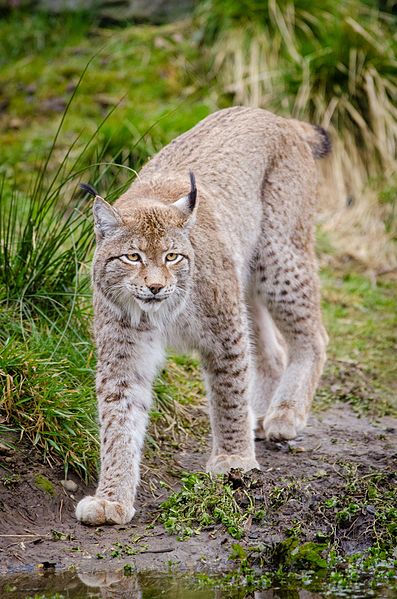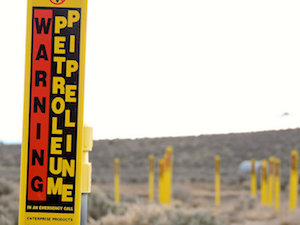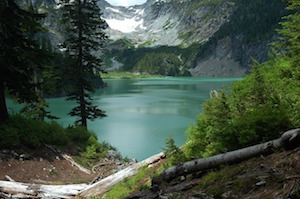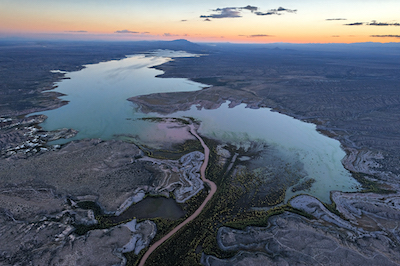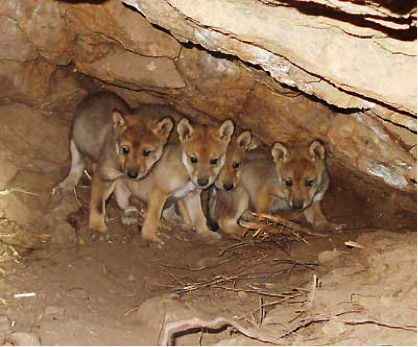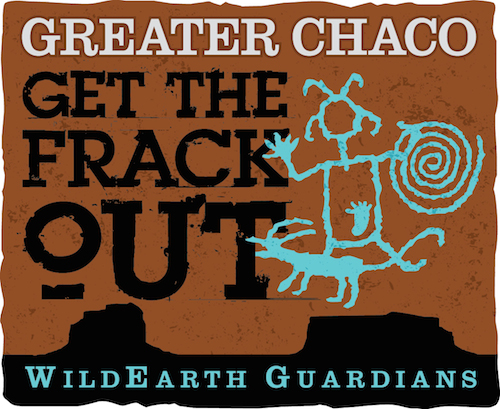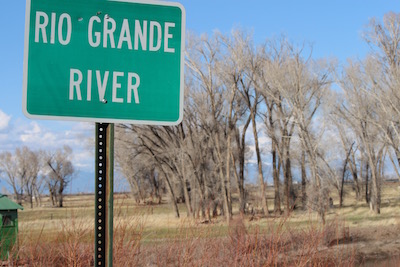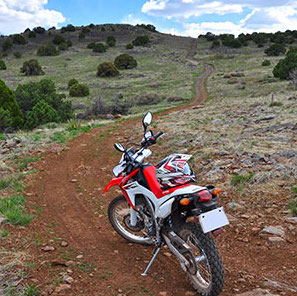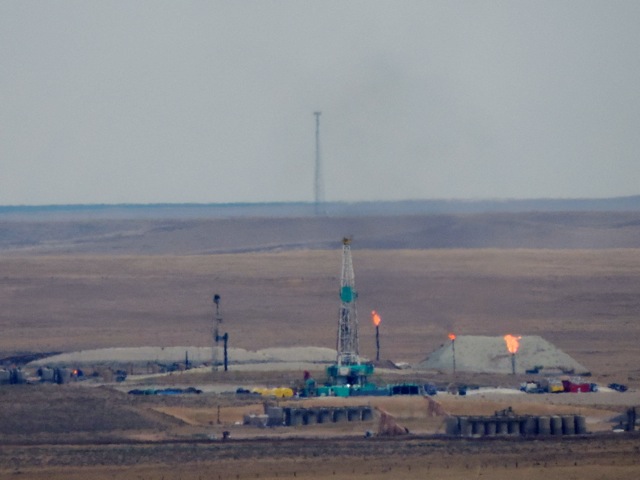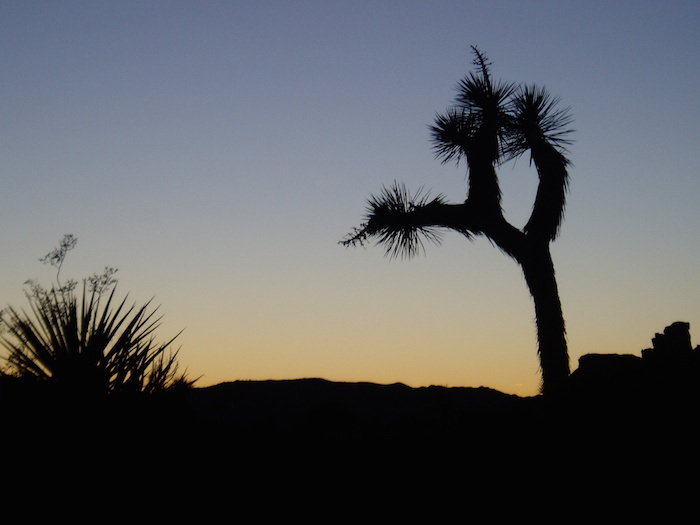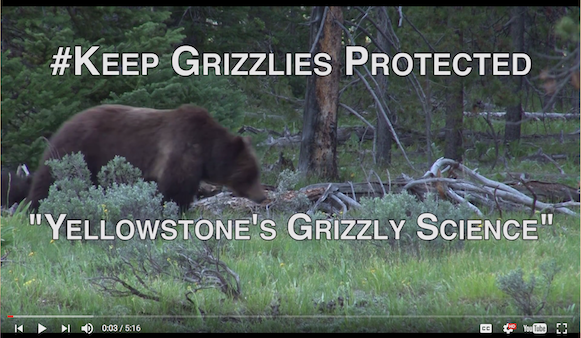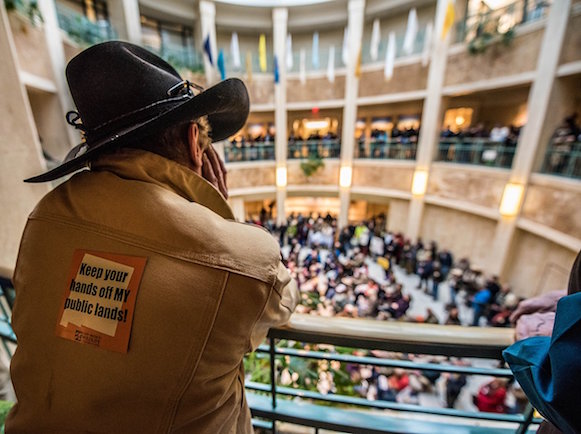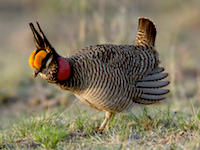
Protecting imperiled species from deadly poisons
Guardians and our allies recently warned the U.S. Fish and Wildlife Service we will sue over its failure to protect threatened and endangered species from two of the deadliest poisons used to kill coyotes and other animals. Sodium cyanide is used in M-44 devices, which discharge poison into the mouths of animals lured by bait. Compound 1080 is used in “livestock protection collars” strapped to sheep and goats. Both pesticides kill indiscriminately and endanger nontarget predatory and scavenging animals, including grizzly bears, Canada lynx, and family dogs. If the agency does not act, our lawsuit will seek common-sense mitigation measures. Read more >> Notorious New Mexico oil pipeline scrapped
We received some great news near the end of 2016 as we learned the application for the Piñon oil pipeline was withdrawn—a big boost for protecting the Greater Chaco region and turning the tide of fracking in the area. This proposed 130-mile-long oil pipeline would have left a giant scar across northwestern New Mexico, opening the door for more than 500 new fracking wells and untold destruction. For many of our friends and allies on the Navajo Nation, the Piñon oil pipeline would have been a disaster. With your help and support, thankfully this misguided oil pipeline is dead. Read more >>On Day 1, House of Representatives makes it easier to give away public lands
Anti-public-lands zealots in Congress are hellbent on handing our public lands over to private interests. On January 3—the very first day the new Congress was in session—the House of Representatives voted to change a long-standing rule on how public lands are valued. Under the old rule, whenever a member of Congress introduced a bill to sell off or give away public lands, he or she had to account for any loss of federal revenue generated on that land. Under the new rule, Congress will treat public lands as though they are of no value to Americans. Read more >>Feds decline additional storage in Elephant Butte Reservoir
The Rio Grande received a reprieve this month when the U.S. Bureau of Reclamation declined to approve a new long-term storage agreement in Elephant Butte Reservoir in central New Mexico. The decision came in response to Guardians’ comments during the environmental review process that this wasteful practice—storing water in low-elevation reservoirs with nearly twice the evaporation of upstream high-elevation reservoirs—is irresponsible. Guardians will continue to push opportunities for agencies to rethink reservoir storage and operations in the Rio Grande Basin to conserve water, increase flows, and support habitat for fish, wildlife, and plants. Read more >>2016 deadliest year yet for critically imperiled lobos
At least 14 endangered Mexican wolves were killed in 2016, the highest death toll for critically imperiled lobos since reintroduction began in 1996. With only 97 Mexican wolves roaming the wilds of their native Southwest at last count, last year’s devastating losses show the immediate need for more releases of captive-bred wolves. In the courtroom and the court of public opinion, Guardians and our allies are advocating for prompt actions to aid Mexican wolf recovery. We are challenging New Mexico’s and Arizona’s attempts to undermine recovery by blocking wild wolf releases, and we are defending federal recovery efforts while pushing them to do more. Read more >>Guardians and allies move to protect Greater Chaco from fracking
Citing the dangers and destruction caused by fracking, Guardians called for a halt to plans for auctioning off public and Tribal lands to the oil and gas industry in the Greater Chaco region of northwestern New Mexico. In an appeal, a coalition confronted the U.S. Bureau of Land Management’s proposal to sell nearly 1,000 acres of publicly owned oil and gas leases to industry. The leases are located near the homes of Navajo residents, within 20 miles of Chaco Culture National Historical Park. The appeal is part of our ongoing campaign to defend our climate and Greater Chaco from fracking. Read more >>Guardians fights for protection of Rio Grande chub
Guardians’ efforts recently helped stop work on a Colorado dam project that threatens to destroy the last known population of Rio Grande chub in its namesake river. A fisherman discovered the chub in the Rio Grande last summer, the first sighting in over 50 years. That sighting alone, however, did not stop the planned dam infrastructure project from proceeding. Guardians intervened and the ditch company halted the project until scientists could confirm the native chub population and determine how to best protect it. We intend to fight to keep the Rio Grande chub here for the future. Read more >>Santa Fe National Forest safe—once again—from rampant motor vehicles
Off-road vehicle advocates failed again in their attempt to open more of the Santa Fe National Forest to motor vehicles. A federal judge in New Mexico recently tossed the second lawsuit attacking the 2012 Santa Fe National Forest travel plan. WildEarth Guardians intervened in the lawsuit to help ensure the plan—which protects wildlife, water quality, and quiet recreation from unregulated motor vehicle use—stays in force. Under the plan, more than 440,000 acres of the Santa Fe National Forest is protected from “cross-country” motorized vehicle use, while motorized vehicles can continue to use more than 2,400 miles of routes. Read more >>Suit filed to defend Denver area from fracking pollution
WildEarth Guardians filed suit last month to overturn the oil and gas industry’s plans for fracking more than 36,000 acres of public lands in the Denver Metro Area. Despite the region’s chronic smog pollution, the U.S. Bureau of Land Management in 2015 opened the door to new fracking, including lands underlying the iconic Pawnee National Grassland. Our suit targets the Bureau’s failure to comply with the U.S. Clean Air Act before issuing the new leases. Reports by the State of Colorado show that in 2017, drilling, fracking, and production in the region will release more smog-forming volatile organic compounds than all the region’s cars and trucks. Read more >>Joshua Tree among “Top Ten” species for conservation under Trump
The Joshua tree, nominated by Guardians, is one of ten species included in a new report from our allies at the Endangered Species Coalition highlighting species that should be conservation priorities for the Trump administration. We petitioned the iconic tree for Endangered Species Act listing in 2015, and it is now moving toward receiving key protections. The newly inaugurated president has shown himself hostile to conservation, stacking his cabinet and government positions with climate change deniers and trophy-hunting enthusiasts. Guardians will stand strong in opposition to the Trump administration’s destructive plans for our country’s natural heritage. Read more >> Scientists speak out against stripping Yellowstone grizzlies of protections
photo credits: (Left column) lynx—Mathias Appel, Creative Commons, Wikimedia. Pipeline sign—WildEarth Guardians. public lands rugged landscape—Pixabay. Rio Grande—Adriel Heisey. Mexican wolf puppies—Mexican wolf Interagency Field Team. Chaco frack logo—WildEarth Guardians. Rio Grande river sign—WildEarth Guardians. Santa Fe National Forest dirt bike—USDA. fracking on Pawnee—WildEarth Guardians. Joshua tree—WildEarth Guardians. Keep Grizzlies Protect youtube video—Anthony Birkholz and Marni Walsh. (Right column) End the War on Wildlife meme wolf—Ray Rafiti. Telluride Mountainfilm banner—Telluride Mountainfilm. NM public lands rally—Dave Cox. lesser prairie chicken—Jess Alford. |
Share this message:
Check out our new End the War on Wildlife website!America’s public lands should be a safe haven for native wildlife. But they’re not. Instead, a federal agency kills millions of animals each year with taxpayer money. We aim to change this. In support of this campaign, we just launched a new website to End the War on Wildlife. Check out our new website here along with our new video, and share both with your friends. ***
Telluride Mountainfilm returns to the Lensic in Santa Fe, Friday, Feb. 24, 7:00-10:00 p.m. Tickets are on sale now.
Guardians and our partners will be hard at work in the New Mexico State Capitol defending our public lands, giving wolves a voice, and fighting to end trapping and killing contests on our public lands.We can’t do it without your help! We need you to join us to rally for a wilder New Mexico on February 1st and again February 8th.
Save the DatesPut these dates in your calendar! Denver Howling Affair: Santa Fe Membership Meeting: June 6 Santa Fe Guardians Gala: Albuquerque Treehugger Bash: Dec. 7
Keep your eyes peeled for more event announcements here in Frontline and on our website: wildearthguardians.org
*** So, How'd it go...
Thank you! In 2016 you helped us fight, and win, many times for the things and places we all care so much about. With your support, WildEarth Guardians ended the year raising $3,800,000 for our campaigns to protect and restore wildlife, wild places, wild rivers, and health across the American West. Roughly half of that amount came from you—our members and monthly donors. We also raised a million dollars from foundations and $800,000 to plant trees and restore streams. With your support we are stronger than ever and ready to meet the growing challenges of 2017. Every gift and action will make a difference in the year ahead. Thank you for your partnership in this work.
If you’ve been a Guardian for a while, you know that we’ve done a lot of work on behalf of the lesser prairie chicken. And we’re glad to say the lesser prairie chicken is back on track for receiving needed safeguards after Guardians and allies submitted a new scientific petition seeking Endangered Species Act protection for the dancing birds. This welcome news follows a bad court decision that left the birds’ survival dependent on voluntary, unenforceable conservation agreements, despite plummeting populations. Guardians, with you by our side, will continue fighting to secure a future for these unique grassland birds threatened by fossil fuel development and climate change. ***
|
|
|
Stay Connected: WildEarth Guardians' mission is to protect and restore the wildlife, wild places, wild rivers, and health of the American West. * ARIZONA * CALIFORNIA * COLORADO * MONTANA * If you received this message from a friend, you can subscribe. Unsubscribe or reduce the number of emails you receive by Managing Your Subscription |
||
